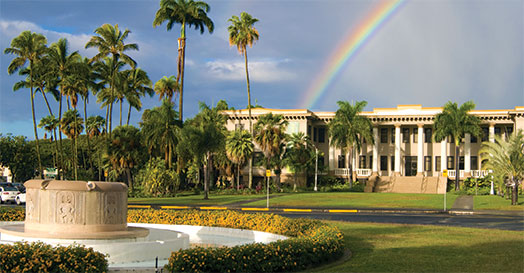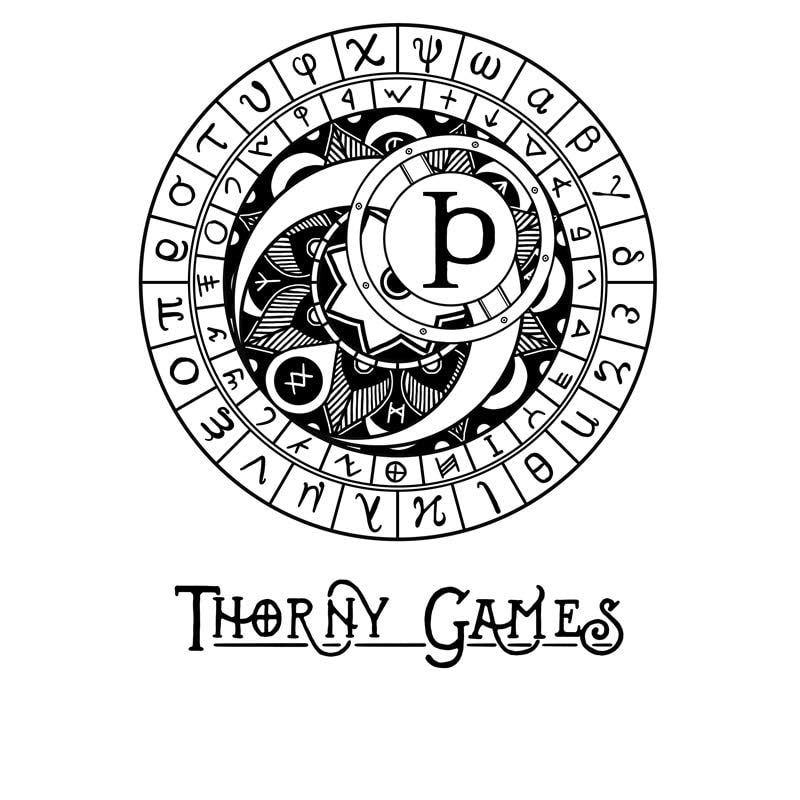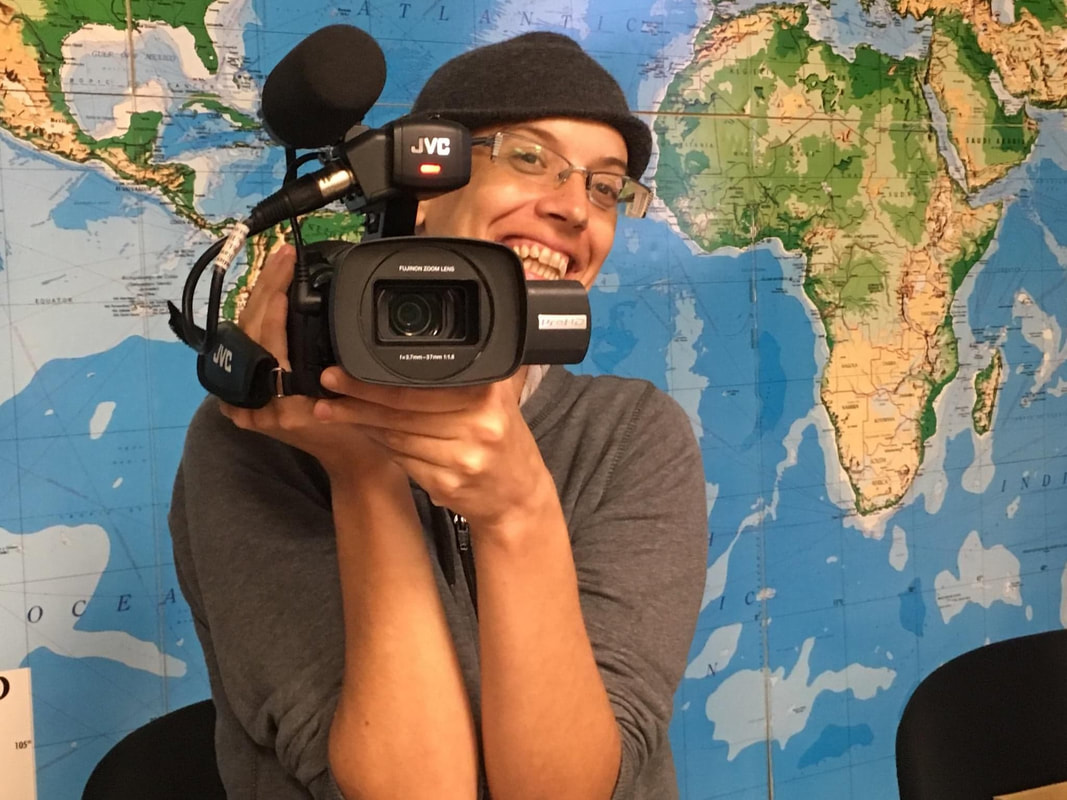SOCIAL EVENTS, PRE- & POST-CONFERENCE EVENTS
|
Pre-Conference Events
Third Workshop on Computational Linguistics for Endangered Languages (ComputEL-3) Imin Center, Hawai'i, February 26-27, 2019 The ComputEL-3 workshop will focus on the use of computational methods in the study, support, and revitalization of endangered languages. The primary aim of the workshop is to continue narrowing the gap between computational linguists interested in working on methods for endangered languages, field linguists working on documenting these languages, and the language communities who are striving to maintain their languages. [ComputEL-3 website] Game Night with Thorny Games
Wednesday, February 27, 2018 4:30pm-9pm Location: Moore Hall 155A & B We will be hosting a special game night for ICLDC6 participants featuring the tabletop roleplaying games Dialect and Sign by Thorny Games. Note: These games take 2-4 hours to play, so please arrive near the beginning of the event to play. Please contact Noella Handley ([email protected]) with any questions and for more information. Dialect: A Game about Language and How it Dies. Dialect is a story game about an isolated community, their language, and what it means for that language to be lost. In it, players tell the story of the Isolation by building their language. New words will come from the fundamental aspects of the community: who they are, what they believe in, and how they respond to a changing world. It plays 3 to 5 players in 3 to 4 hours. Players take away both the story they've told and the dialect they've built together. Through this shared experience, they develop appreciation for what it means to share a common language and get some personal understanding and perspective for what language loss means. There are a number of contributed playsets by authors with personal connection into different real-world linguistic cultures that also offer special rules for play. Sign: A Game about Being Understood. Nicaragua in the 1970s had no form of sign language. If you were deaf, you had simple gestures with a trusted few, likely nothing more than a form of pantomime you negotiated with your family to meet basic needs. In 1977, something happened. Fifty deaf children from across the country were brought together to an experimental school in Managua. Without a shared language to express themselves, the children did the only thing they could they created one. In Sign, we follow a small piece of their journey. Sign is a live action roleplaying game for 3 to 6 players that uses silence as one of the core tools of gameplay. It seeks to give players a greater understanding of the deeper personal consequences that arise from barriers to communication and educate them about one of the most important examples of emergent language in modern times. About Thorny Games A tabletop and live-action gaming studio out of San Francisco, Thorny Games focuses on quirky and thoughtful games about language and cryptography. They've run successful Kickstarters for language focused games and worked as language consultants for the video gaming industry. Their work on expanding gaming to the personal and emotional aspects of language has been awarded recognition in a number of venues, including being named a finalist for the 2017 Indiecade Awards. About Hakan Seyalioglu Dr. Hakan Seyalioglu is 50% of Thorny Games (along with Kathryn Hymes). In his design, he's most interested in exploring language means for us culturally and emotionally, and how it can be an engaging mechanic for play. He's a former GenCon Industry Insider and active member of the Bay Area design community. He hopes to spread the word of play as a tool for empathy and understanding and really enjoys breakfast. |
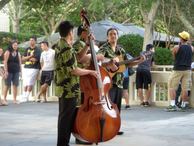
Events during the Conference Evening Receptions Thursday, February 28 & Saturday, March 2 Imin Center Lanai The ICLDC 6 receptions will be held outside on the Imin Center Lanai. The evening will be an opportunity to mingle with other conference attendees while enjoying pūpū (Hawaiian for ‘hors d’oeuvre’), drinks, good conversations, and live entertainment. The International Year of Indigenous Languages (IYIL) Wikipedia Edit-A-Thon, presented by the Language Documentation Training Center (LDTC) and the Endangered Languages Project (ELP)
Saturday, March 2, 11:00–12:30 Tagore Room In the spirit of increasing indigenous language representation online, this session provides a casual and communal location for language activists to create, translate, or improve language pages on Wikipedia. For those who have never edited Wikipedia in the past, a brief training will be provided at the start of the session and support will be available throughout. Participants should bring their own devices to work on. ICLDC 6 Short Film Screening Thursday, February 28, 7:30 pm Moore Hall 258 A selection of short films related to language documentation and conservation will be shown. The films were created by conference participants, who will be on hand to introduce their films. Short question and answer sessions will be held immediately after the film screenings. Fertile Ground for Patwin Language Description: Narrated by Patwin Elder Pam Gonzales, this video explores how the restoration of a native tending and gathering garden started the seeds of one of the most successful language revitalization efforts in California. Traditional food, inter-generation transference of knowledge, language revitalization and local history are highlighted in this short video. Introduced by: Todd Gettleman (editor) Quechua en Seattle Description: Though Quechua is considered an endangered language, it continues to exist - not only in Peru but also in immigrant communities around the world, like in Seattle. Away from the homeland, this language faces unique challenges as it competes with many more languages in the homes of Peruvians and Peruvian-descendants. Nevertheless, its presence around the world might also help renew interest in the language. Introduced by: Chaska Rojas-Bottger (producer and director) Yamani - Voices of an Ancient Land Description: Through their advocacy work, six Queensland woman have become close friends and found a collective passion for music. The women decided to each bring a song in their language to share at one meeting. The musical gathering highlighted the importance of contemporary song in sharing language and encouraging family language use. They call you to join them, by listening or singing along, to let this ancient land once again - and in ever louder volume - hear the voices that hold and tell its stories. Introduced by: Faith Baisden (director and producer) It’s up to you Description: A young dancer interviews her grandmother to learn more about the history of her culture and get advice. Featured is the Gwa'sala-'Nakwaxda'xw Nation community on the Tsulquate River in Port Hardy, British Columbia. Betty Walkus is the interviewee, and Roberta Williams is the film’s creator. Language assistance was provided by Betty Walkus & Ema Child. The film has also won two awards (Jury Recognition Award at the 2015 Reel 2 Real International Film Festival for Youth and Best Research at the 2015 Cowichan Aboriginal Festival of Film & Art) Introduced by: Erin Latham and Kristen Walkus There is hope Description: An incredibly brave and personal story about going down a bad path as a young person, but then, inspired by culture, choosing a more positive and productive route. The film was created by Roberta Williams in Tsulquate, BC. Introduced by: Erin Latham and Kristen Walkus |
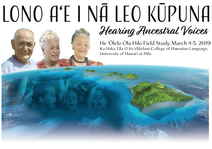
Post-Conference Event Lono A‘e I Nā Leo Kūpuna: Hearing Ancestral Voices (Hilo Field Study) March 4-5, 2019 An optional two-day He ʻŌlelo Ola Hilo Field Study (on the Big Island of Hawaiʻi) to visit Hawaiian language revitalization programs in action will take place March 4-5, 2019, immediately after the ICLDC conference on the island of Oʻahu. 35 years ago marks the start to restore life for the Hawaiian language through Hawaiʻi's first Pūnana Leo Hawaiian language medium preschools. The Hilo Field Study provides first-hand experience of Hawaiian language revitalization by visiting the infant toddler through high school Hawaiian medium education system. The University of Hawaiʻi at Hilo's College of Hawaiian Language prepares fluent second Hawaiian language speakers to become Hawaiian immersion teachers through the College's Kahuawaiola Teacher Licensing Program. The theme for the He ʻŌlelo Ola Hilo Field Study conference, Lono Aʻe I Nā Leo Kūpuna - Hearing Ancestral Voices, highlights Hawaiʻi's last native Hawaiian speakers and the importance of connecting to language documentation for language rejuvenation. Registration and program information for He ʻŌlelo Ola Hilo Field Study Please note that the Hilo Field Study is separate from ICLDC registration. Also, as noted above, the Hilo Field Study takes place on the Big Island of Hawaiʻi, while the ICLDC takes place on the island of Oʻahu, so please take this into account when you plan your travel. |
